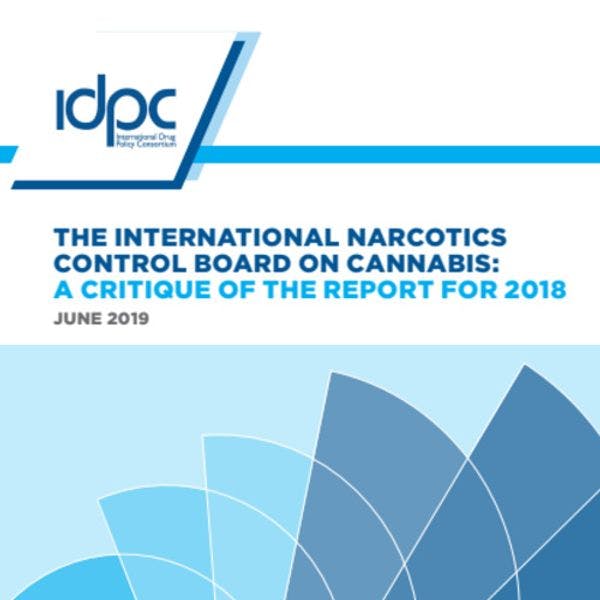The International Narcotics Control Board on cannabis: A critique of the report for 2018
Celebrating its 50th anniversary, the International Narcotics Control Board (INCB or Board, see Box 1) today finds itself operating within a UN-based international drug control system facing unprecedented challenges; challenges that stem not only from a growing and increasingly complex global drug market, but also a divergence of views among member states on how best to deal with it. It is within this context that March 2019 saw the publication of the Board’s Annual Report for 2018.
The Annual Report represents a key document within the UN drug control system. It plays an important role in not only providing an analysis of the ‘drug control situation world-wide and potential situations that may endanger the objectives of the international drug control treaties’, but also in setting the subsequent tone of debates and identifying areas that it feels are of concern.
As can be seen over the past 45 years or so, the potency of the Report has arguably shifted away from the public and more towards influencing opinion within the UN’s central policy-making body on the issue of drugs, the Commission on Narcotic Drugs (CND). For this reason, it is vital that the Board presents balanced, accurate and impartial information within its Reports in their entirety, including the thematic chapter.
Since 1992, the first chapter of the Annual Report has, according to a former President and longstanding member of the Board, ‘addressed a specific drug-related theme of international importance’ with the themes ‘chosen each year on the basis that it reflected current concerns related to the conditions prevailing in the world at that time’. It is perhaps no surprise then that within the current international policy environment the focus of this year’s Chapter I is cannabis – more precisely ‘Cannabis and cannabinoids for medical, scientific and “recreational” use: risk and benefits’.
The INCB’s attention to and stance on cannabis, including its use for medical purposes, has fluctuated over the years. Yet today it is faced with an increasingly pressing dual dilemma: how to approach the concomitant expansion of – sometimes poorly controlled – medical markets and the shift by a growing number of jurisdictions to implement legally regulated markets for non-medical and non-scientific cannabis use. This IDPC report aims to provide a critique of the Board’s discussion of cannabis.
Previous reports in this series:
- IDPC response to the 2017 INCB Annual Report
- IDPC response to the 2016 INCB Annual Report
- IDPC response to the 2015 INCB Annual Report
- IDPC response to the 2014 INCB Annual Report
- IDPC response to the 2013 INCB Annual Report
- IDPC response to the 2012 INCB Annual Report
- IDPC response to the 2011 INCB Annual Report
- IDPC response to the 2010 INCB Annual Report
- IDPC response to the 2009 INCB Annual Report
- IDPC response to the 2008 INCB Annual Report
- IDPC response to the 2007 INCB Annual Report
Downloads
Topics
Regions
Related Profiles
- International Drug Policy Consortium (IDPC)
- Global Drug Policy Observatory (GDPO)
